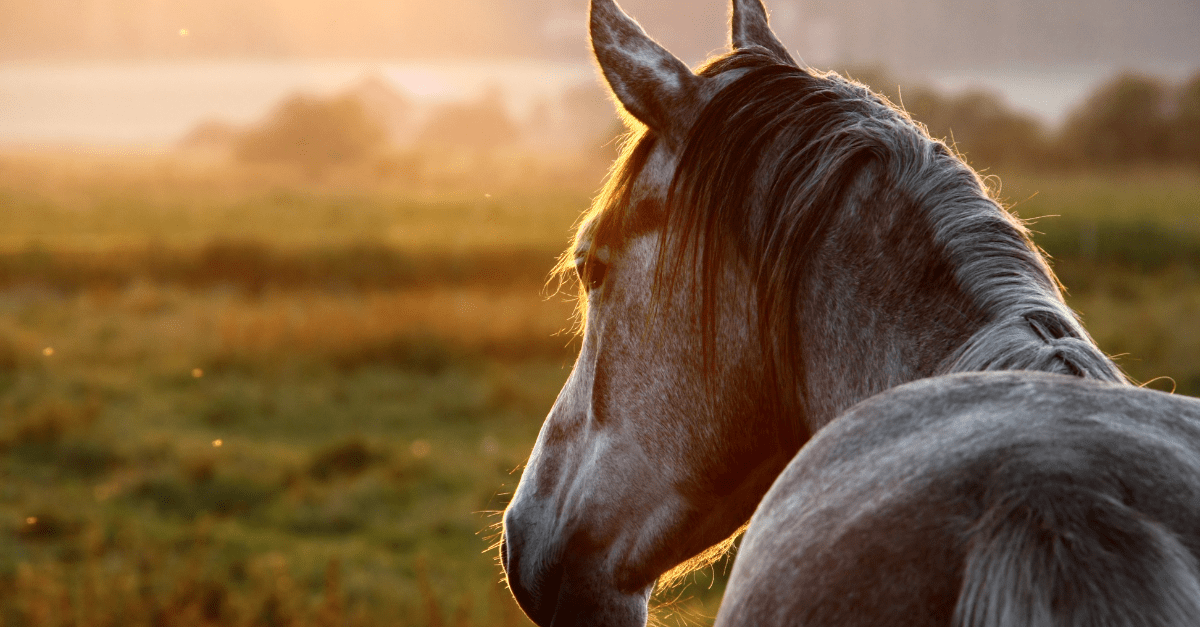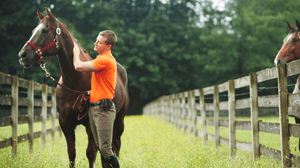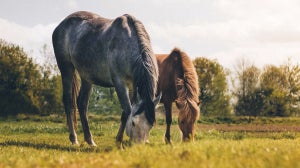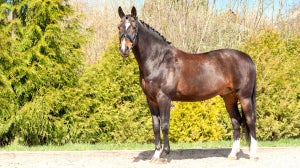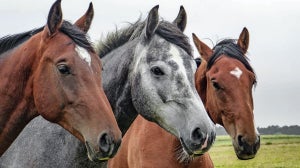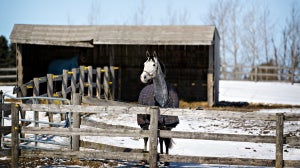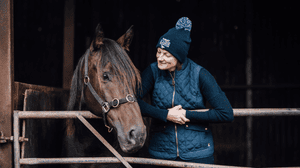
Free faecal water syndrome (FFWS) is when horses pass water before, during, after, or independently of, defaecation but have normal droppings. It is different to diarrhoea – where the droppings themselves are loose or watery. Although a link with colic has been suggested, the consequences of FFWS are mostly mild, but they can be unpleasant for the horse and irritating for the owner.
Despite a great deal of research into FFWS the exact cause is unclear, with different studies showing conflicting results. A dietary cause seems like the obvious place to start but studies have at best only found a weak link with feeding haylage rather than hay, and with an abrupt change in diet. Some horses seem to be better on grass, and others worse; some worse in spring, others in winter, and others the same all year round; some studies link FFWS to dentition or parasites and others find no link.
Most researchers and vets do agree on some common factors which predispose to FFWS:
Coloured horses are more likely to get FFWS.
Social stress – such as being low down in the social hierarchy (pecking order) – is a trigger. Which is probably why…
Geldings are more commonly affected than mares.
Physical stress like travelling is a trigger.
Dysbiosis – an imbalance in the microbiota – is being investigated as a cause or effect of FFWS.
Inflammation in the gut lining leads to decreased water absorption from the gut, and contractions of the gut wall which squeeze water out of the digesta. Both of which could lead to FFWS.
Stress is known to impact the gut in a variety of ways: it increases gut motility (leaving less time for water absorption), increases gut permeability, increases gut secretions, reduces water absorption, and modifies the microbiota. Stress also affects the immune system, which along with inappropriate diet or changes in the microbiota can lead to inflammation in the gut lining. In this way, the risk factors above are linked together and we can see how social or physical stress, dysbiosis and inflammation are associated with FFWS.
Management of this condition may need to be adjusted to each individual horse but appropriate first steps are:
Feed a high fibre diet. Fibre helps to keep the colon healthy, supports the microbiota, reduces inflammation and holds water in the gut. Ideally this fibre should come from dry forage like hay.
Feed a low starch diet. Starch can lead to acid production, dysbiosis and inflammation in the colon.
Make dietary changes gradually.
Avoid social stress by reducing the size of the turnout group, avoiding aggressive field mates, and providing areas of refuge.
It is also probably best to avoid lush pasture, but be aware that each horse may respond to different triggers and treatments.

